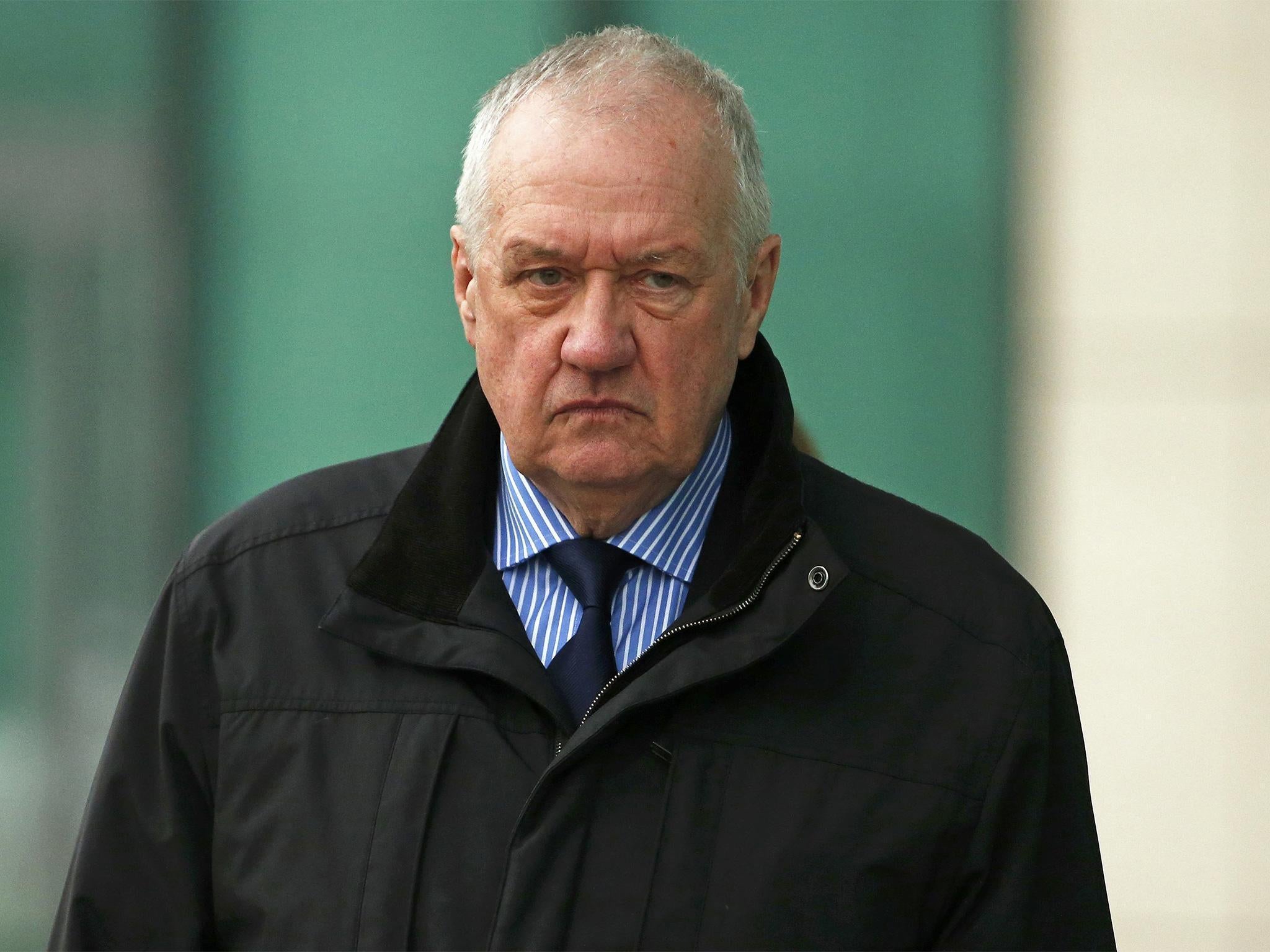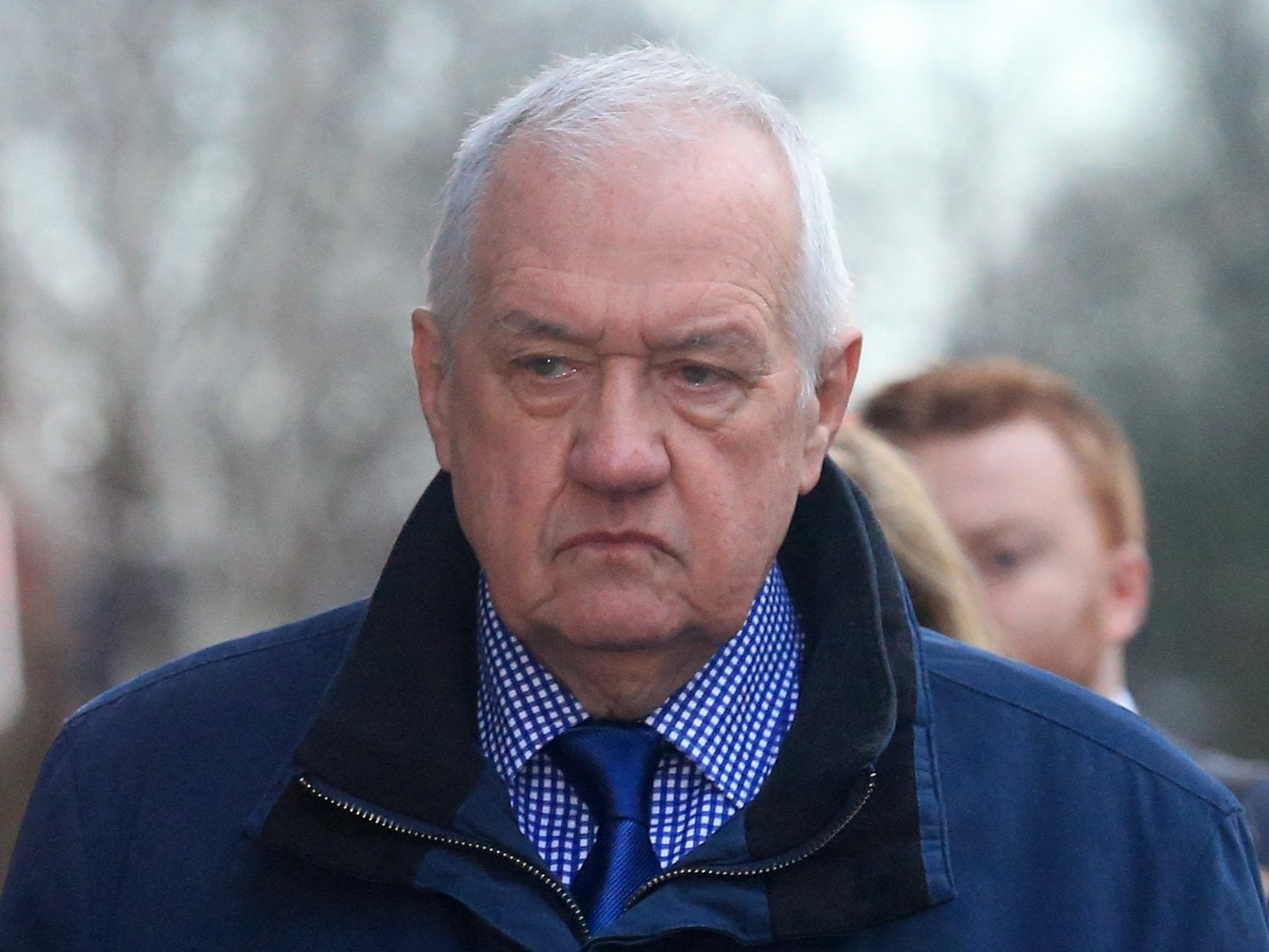Hillsborough trial: David Duckenfield 'unfairly singled out' for manslaughter prosecution, defence claims
Prosecution says match commander's 'extraordinarily bad' series of failings led to fatal crush

David Duckenfield has been “unfairly singled out” for prosecution over the Hillsborough disaster, his defence lawyer has claimed.
The match commander “was not equipped with special powers to anticipate things that everybody else didn’t,” Benjamin Myers QC told a jury at Preston Crown Court.
He added: “It can hardly be fair to judge Mr Duckenfield by different standards from everyone else.
“The prosecution are blaming him for ... events that can’t be attributed to the fault of any persons in particular.
“What happened on 15 April 1989 was brought about by a combination of factors great and small, some with their roots in events years before and some that emerged in the hours and minutes before disaster struck.”
The prosecution had previously told the court that Mr Duckenfield’s “extraordinarily bad” failings as match commander was a substantial cause of the deaths.
Richard Matthews QC said it “required no hindsight” to realise the risk of a fatal crush in fenced pens at the Leppings Lane end of Hillsborough stadium.
Mr Duckenfield did not consider the consequences of an influx of thousands of Liverpool fans down a tunnel into the already overcrowded pens when he ordered a large gate to be opened to ease a separate crush outside the stadium, the court heard.
Prosecutors said he then failed to take action as the disaster was unfolding, with survivors and witnesses recalling how they shouted at police officers for help, and to be let out, but got no repsonse.
Excerpts of statements from officers were read showing that they were operating without orders from Mr Duckenfield, or the police control box, to try to manage crowds at the Leppings Lane end.
Even as the victims were being crushed to death, police communications played to the court suggested that some officers believed the incident to be a pitch invasion and responded accordingly.
When the match was stopped at 3.05pm, police triggered operation support, which was not a safety operation but a “contingency plan to deal with spontaneous disorder”.
Mr Matthews said: “No matter who else could have done better, done more, done things differently, Mr Duckenfield’s failures continued.
“Each flowed from his own decision making and fell squarely within his personal responsibility as match commander.
“Ultimately Mr Duckenfield failed in the most appalling manner to monitor what was happening in pens three and four, and to prevent or avert the inevitable consequence of the flow of many spectators into the central tunnel, crushing the life out of so many people.”
But speaking later on Thursday, Mr Myers told the jury a combination of factors “came together in catastrophic fashion … and to single out David Duckenfield is artificial and unfair”.
The defence lawyer said that the fencing that contributed to the disaster was common at football stadiums in the 1980s and that safety risks that may seem obvious now “were a fact of life in 1989”.
Mr Myers asked the jury to “keep in mind the danger of hindsight, the historical context and the possible unfairness of applying unreasonable standards to Mr Duckenfield from what is expected for others”.
Mr Myers pointed out that the prosecution has accepted that other people are at fault “but they are not accusing them of gross negligence manslaughter”.
He added: “You may be wondering how it can be fair to single out one man for prosecution when there are so many other people at fault – so are we. Looking back now, there may be things that could be done differently or better, and the same can be said for a good many people.”

Mr Myers said his client believes he was not negligent and “did his best”, and that “bad stadium design, bad planning, some aspects of crowd behaviour, some of police behaviour, and genuine human error” contributed to the disaster.
He reminded the jury that Mr Duckenfield is not representing South Yorkshire Police or any other agency, adding: “Our sympathy for others can never be a reason to convict another for events beyond his control or repsonsiblity.”
Mr Duckenfield, now 74, denies manslaughter by gross negligence of 95 victims.
There can be no prosecution over the death of the 96th victim, Tony Bland, as he died more than a year and a day after his injuries were caused.
Graham Mackrell, Sheffield Wednesday’s former club secretary, denies health and safety offences.
The trial continues.
Read our live coverage below:
Please allow a moment for the live blog to load
Mr Matthews says Operation Support was not a safety operation but a "contingency plan to deal with spontaneous disorder"
"Calling operation support would tell the officers being called out that they were dealing with a public order problem," he adds
Mr Matthews says the jury will hear from PC Ramsden who went on to the pitch after 3.15pm.
He described “complete and utter turmoil". Mr Matthews says: "He could not see anybody taking control. He could see that control was needed; that people were trapped; that cutting equipment
was needed. All he saw were people at junior level trying to make the best of a bad situation."
The jury is being played footage from the view of the police control box at 3.12pm, showing officers trying to pull people over front fences
A minute later, police made a call saying the fire brigade was "urgently required" with cutting equipment
At 3.14pm a recorded call shows a police officer wrongly telling a fire service official that a "crowd had forced their way in and broken the fences and gates down. I don't know exasctly what it is but there are people trapped".
A turnstile camera at 3.14pm shows an ambulance arriving at Leppings Lane, then at 3.16pm arriving on the perimiter track
At 3.17pm there was a request from police control for an incideent log and casualty inquiry bureau. "There are a lot of casualties, a lot of casualties," a voice is heard saying
The jury is being shown footage of more ambulances arriving, and the first fire engine at 3.25pm
10 minutes later, Mr Duckenfield is seen on the service road
At 3.29pm a BBC commentator can be heard saying "a lot of people have clearly been hurt".
At 4.32pm crowds can be seen leaving hte stadium back donw Leppings Lane.
The jury is being shown footage of pens 3 and 4 in the immediate aftermath of the disaster. Metal crush barriers can be seen bent out of shape and pulled off supports, with some fences cut and peeled back and others caved in
Mr Matthews is wrapping up the prosecution's opening case, saying the trial is different from the Hillsborough inquests.
He says that Mr Duckenfield gave evidence at those inquests and the judge will give them guidance on how to handle it
Mr Matthews says Mr Duckenfield had "direct experience of policing football matches, including at Hillsborough, and involvement in various roles as a senior officer in policing football and other public events"
"Any lack of experience he may have had as a Match Commander of such an event at this ground, the prosecution say, should and would have caused the reasonably competent Match Commander to pay particular attention to any aspects of the ground or the role with which he was not familiar," he adds
The prosecutor says that Mr Duckenfield admitted to "a series of failings" at the Goldring Inquests and accepted that there would have been a range of resources and documents available to him that would provide guidance
"He agreed that those resources emphasised the importance of careful policing of the crowd at the turnstiles, at the point of entry to a stadium. He agreed that they emphasised the need for contingency plans to accommodate or respond to a situation in which the turnstile delivery rate was insufficient to prevent a large gathering of spectator at the turnstiles; and that both these features were relevant not only to public order policing, but also to the safe policing of a crowd"
